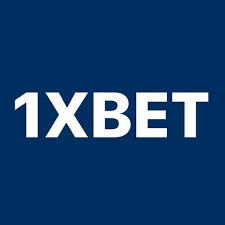
The Role of NFTs in Online Gambling and Casino Collectibles
In recent years, the explosive popularity of non-fungible tokens (NFTs) has extended far beyond the realms of art and music, making significant inroads into various sectors, including online gambling and casino collectibles. The unique characteristics of NFTs allow for sophisticated ownership tracking and authenticity that can revolutionize how players interact with virtual gambling environments. This article explores the transformative role of NFTs in online gambling and casino collectibles, highlighting their benefits, challenges, and potential future. To ensure the best betting experience, consider visiting The Role of NFTs in Online Gambling and Casino Collectibles top sportsbook for betting.
Understanding NFTs: A Brief Overview
Non-fungible tokens (NFTs) are unique digital assets that represent ownership of a specific item or piece of content, verified on a blockchain. Unlike cryptocurrencies such as Bitcoin, which are fungible and interchangeable, NFTs possess unique identifiers and metadata that differentiate them from one another. This uniqueness makes them ideal for representing ownership of collectibles, art, and digital assets. In the gambling context, NFTs can symbolize virtual items, virtual real estate in games, or even unique poker chips.
The Integration of NFTs in Online Gambling
The incorporation of NFTs into online gambling platforms can significantly enhance the user experience. Here are a few ways this integration can manifest:
1. Unique Gaming Assets
One of the primary applications of NFTs in online gambling is the creation of unique gaming assets. Players can own rare cards, tokens, or skins that enhance their gambling experience. The rarity and ownership aspect can increase the perceived value of these digital items, providing an added layer of excitement.
2. Provably Fair Gambling
Using blockchain technology ensures that each bet placed and every outcome can be verified by users. This transparency is enhanced with NFTs, where ownership and provenance can be easily tracked. Players can trust that they are participating in a fair game, which is paramount in the gambling industry.
3. Social Interaction and Community Building
NFTs can create a sense of community among players. Gamblers can share their unique collectibles, trade them, or even collaborate on games. This social interaction can foster a stronger community, leading to increased user retention on gambling platforms.
Casino Collectibles and Loyalty Programs
Many casinos are beginning to recognize the potential of NFTs in developing loyalty programs. Traditional loyalty programs involve earning points and rewards, but NFTs take this to a new level. Customers can receive NFTs as rewards for their loyalty, which may represent exclusive entries to special events, bespoke gameplay experiences, or even physical prizes.
1. Exclusive Rewards
Casinos can offer exclusive NFT collectibles that represent significant milestones, such as anniversaries or special promotions. These collectibles can then appreciate in value, becoming a digital asset that customers can keep or trade.
2. Personalized Experiences

Players can use their NFTs to access personalized experiences within the casino ecosystem. For instance, owning a particular NFT might provide access to VIP areas or exclusive games. This level of personalization can increase player engagement and satisfaction.
Challenges Facing NFT Adoption in Gambling
Despite the potential benefits, several challenges need to be addressed for the successful integration of NFTs into online gambling platforms:
1. Regulatory Hurdles
The gambling industry is heavily regulated, and the introduction of NFTs could complicate compliance with existing laws. Policymakers will need to understand how NFTs fit into current gambling regulations to ensure legal compliance.
2. Market Volatility
The value of NFTs can be highly volatile, which might create uncertainty for players and platforms alike. Strategies must be implemented to mitigate risks associated with fluctuating NFT prices.
3. Consumer Education
Many users are unfamiliar with NFTs and the blockchain ecosystem. Comprehensive educational efforts will be essential to raise awareness and understanding among gamblers, ensuring they feel comfortable engaging with NFTs.
The Future of NFTs in Online Gambling
The future of NFTs in online gambling appears promising. As more players become interested in digital collectibles, platforms will need to adapt to remain competitive. The convergence of gaming, gambling, and the blockchain ecosystem will likely lead to innovations that redefine user experiences.
1. Increased Collaboration
We may see increased collaboration between casinos and NFT artists, leading to unique gambling experiences that combine art and betting. This collaboration would benefit all stakeholders, from players to creators.
2. Expanding Gameplay Mechanics
Expect to see new game mechanics that integrate NFT ownership into gameplay. For instance, traditional card games might evolve to include rare NFT cards, or gamblers may earn NFTs based on their gameplay performance.
3. Enhanced User Engagement
As NFT technology matures, user engagement is expected to rise. Casinos that effectively implement NFTs into their platforms could see significant improvements in customer loyalty and acquisition.
Conclusion
The role of NFTs in online gambling and casino collectibles is a dynamic and evolving landscape. While challenges remain, the potential for innovation and enhanced user experiences is vast. As the industry adapts and embraces this technology, players can look forward to a more immersive, exciting, and rewarding gambling experience. By harnessing the unique qualities of NFTs, online casinos can pioneer a new paradigm in gaming and collectibles, enriching both the virtual gambling environment and the overall gaming community.
